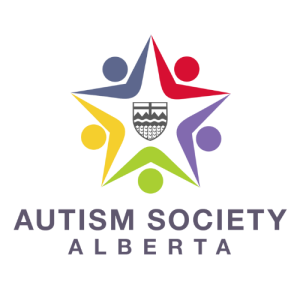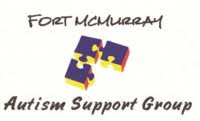Parents Start Swimming Program in Red Deer
Those of us who are in Red Deer are lucky to have an amazing recreation facility, The G.H. Dawe Community Centre, that is working very hard to offer recreational programming for children with unique needs.

We contacted an aquatic program specialist, and they were more than happy to work in team with us to come up with a swimming lesson opportunity for our children. We decided that the easiest and most cost-effective way for our children to experience success in swimming lessons would be to create our own class. Essentially we created a private class and filled the lesson with our children. We have four children in the class, and I think it is important to note that our class is comprised of not only children with exceptional needs, but also typical children (siblings). The Dawe Community Center slotted two of their top lifeguard instructors, a pool manager and an instructor completing a degree in adapted physical education – how lucky were we!
We briefly met with the instructors and they were eager and enthusiastic! They incorporated a visual schedule, concentrated on keeping the children focused, and most of all had a good foundation of what it meant to work with special needs children. Our swimming lesson teachers know that our children aren’t “misbehaving” when they respond differently – they are communicating, and they understand that our children’s swimming skills may look different, but they are still skills just the same.
An excellent example of how amazing the lifeguard instructors are was evident to us during the first five minutes of our first class. One of our children was overwhelmed – she was visibly upset and crying, as this was her first swimming lesson. One of the siblings explained to the instructor, “that’s my sister Matea, she is having a hard time right now. She has autism.” The instructor responded perfectly, “She has a really awesome swimsuit, too.”
ASA’s Member Survey is Coming Soon
Check your e-mail box next week for a survey about ASA’s online presence. It’s your chance to tell us how you feel about our e-mail newsletters, web site and social media, and give us your ideas on how we can engage you and connect with you better in 2015. We’re looking forward to hearing your feedback!
Fort McMurray Autism Support Group Hosts Free Workshops

On Saturday January 17, 2015, our group held two Free Workshops at the Clearwater Public Education Centre. In the first workshop, Jennifer Black looked at Managing Anxiety in School Age Children with ASD. Many children with an ASD also present with anxiety. As some are not able to express or cope with anxiety, they resort to displaying defiant, avoidant, aggressive, self-injurious or other maladaptive behaviours. This workshop explored resources for school age children to help build their understanding of anxiety and worries. We also explored some regulation and calming tools and strategies that parents can use with their children that could be effective in reducing their anxiety.
The second workshop was Financial Planning for Children with Special Needs, with a certified Financial Planner. There was also information on Transitioning to Adulthood: Supports, Services and Strategies with Terry Duncan. For many people with autism little things can make the difference between a successful transition and a nightmare of dysregulation. This workshop focused on explaining the importance of the little things behind a successful transition. Attendees had the chance to learn some strategies to help support their loved ones to transition more smoothly, and some strategies for responding when they become dysregulated.
One of the participants praised the workshops for offering "so much information!" Another participant said, "I really enjoyed the session I attended!"
Fort McMurray Autism Support Group is planning another event for April. Our next Board meeting is in February. The date is still to be determined.
To learn more about the Fort McMurray Autism Support Group and find out about upcoming events, visit our web site and join our Facebook group.
Spectrum Advantage and the Next Stage of Diversity
“Spectrum Advantage” is a brand new community-based project of Autism Calgary designed to educate, assist and support individuals (18-30) who are living on the Spectrum. We are providing participants with a continuum of employment and educational opportunities within the “digital economy” in order for them to gain meaningful and permanent employment positions. This 4 month program provides a one month classroom program that will assist all participants with soft skill development and will also include financial assistance to our participants. When employed, a wage reimbursement for employers is offered to offset any training costs incurred for up to their first 3 months of employment. Ongoing job coaching is also offered to all our participants both on and off the job.
If you have questions or want to apply to be a participant in the next program session, contact Sarah Taylor at sarah@autismcalgary.com or call (403) – 210-5000 #2032
Intellectual Disability and Risk of Mental Ill Health

Co-occurring psychiatric conditions (such as anxiety disorders, depressive disorders, psychoses and obsessive compulsive disorders) are frequent in intellectual disability. They also occur at rates three to four times higher than in the general population. The assessment of common mental disorders is made more difficult in people with intellectual disability due to issues such as difficulty communicating, a reliance on carers for information, the atypical presentation of these disorders in people with intellectual disability, and the presence of complex co-occurring mental and physical disorders.
Certain biological and psycho-social factors increase the risk of having a mental disorder in persons with intellectual disability. With regards to biological factors, the presence of intra-cranial abnormalities such as hydrocephalus, structural brain vessel disease and brain hemorrhage, can contribute to the occurrence of conditions such as depression and psychosis. Epilepsy is another important risk factor, and unfortunately, some commonly prescribed anti-epileptic drugs (AEDs) can also cause behavioural problems and mental ill health.
Psychological issues abound in the lives of persons with intellectual disability, and when present, lead to increased risk of mental illness. Common issues that need to be identified and dealt with include histories of rejection, emotional and maternal deprivation, abuse, stressful life events, separations and losses. Poor problem-solving skills, a lack of mature coping strategies, poor self-acceptance and low self-esteem are some of the many psychological risk factors for mental ill health.
Negative societal attitudes and expectations, stigmatization, prejudice, social exclusion, poor supports, inappropriate or abusive relationships, as well as financial and legal disadvantages are some social factors that contribute to the presence of mental disorders such as depression and anxiety disorders. A holistic approach, ideally involving collaboration between various agencies, is often required to be able to address these factors completely and in a timely manner. In this regard, close working between the Psychiatrist, Psychologist and Social Worker is crucial if interventions are to be successful.
Congratulations, Dr. Hendriatta Wong!
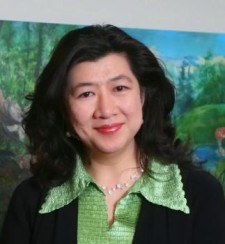 Autism Society Alberta would like to congratulate one of our directors, Hendriatta Wong, Executive Director of the Autism Society of Edmonton Area, on her recent achievement. Hendriatta has just been awarded a doctoral degree in Business from the University of Manchester. It’s quite an achievement for a mom of two active boys who also works, and, with husband Cory, oversees family businesses. We are already seeing Hendriatta’s knowledge and talents being put to good use on behalf of people with autism and their families. Congratulations, Hendriatta!
Autism Society Alberta would like to congratulate one of our directors, Hendriatta Wong, Executive Director of the Autism Society of Edmonton Area, on her recent achievement. Hendriatta has just been awarded a doctoral degree in Business from the University of Manchester. It’s quite an achievement for a mom of two active boys who also works, and, with husband Cory, oversees family businesses. We are already seeing Hendriatta’s knowledge and talents being put to good use on behalf of people with autism and their families. Congratulations, Hendriatta!
Bubbles for Autism

Autism Society Alberta would like communities across Alberta to unite on April 2 in coordinated bubble-blowing events across the province, in support of autism awareness and persons with autism.
If you would like to organize an event in your community, please contact Kirsti Mardell at thirsti_@hotmail.com.
Do You Live in St. Paul, Bonnyville or Cold Lake?
We Want to Hear From You!
Creating A Vision
“Having a vision for the life of a person with a disability is really about claiming the right to ordinary dreams…and believing that they can happen.” – Margaret Stroeve
Developing a clear vision for your son or daughter’s future is fundamental to their later success in life. A vision for your child is developed and refined over time as you gain knowledge and understanding of your child and his or her strengths, capabilities and place in the world. Human Services is committed to helping your family explore and express what your child’s vision for their future entails so they are better able to create the life they dream about.
For more information on how creating a vision can support and guide your family in planning for the transition to adulthood, visit the Your Vision page on the Family Support for Children with Disabilities website.
Calling All Creative Minds! – ASEA’s Program Naming Contest
The Autism Society of Edmonton Area (ASEA) is proud to announce the development and upcoming launch of an innovative new program, designed for youth and adults on the autism spectrum!
We are looking to name our new Social-Recreational Respite program. ASEA is working to empower and engage the entire community, and as such, we would like to invite the entire community to name this program. However, we want a name that highlights the interests, personalities and amazing attributes of our diverse and incredible autism community. We want this name to challenge the norm.
And we want YOU to help us come up with it! Please share this contest with your networks – the more wordsmiths, the better!
The contest winner who helps us come up with the BEST name for this new program will receive a generous prize of $400 – sponsored by our friends at INSIGHT Psychological Inc.
Submissions need to be submitted no later than midnight (GMT) on Monday February 2nd for consideration. This contest is open to any resident of Canada.
FOR ALL CONTEST DETAILS VISIT https://www.autismedmonton.org/social-recreational-respite-program-naming-contest
Free Webinar: Self-Employment – Is It Right For You?
In this one-hour interactive session, we will explore self-employment for persons with disabilities. Our speakers will discuss the opportunities and challenges that exist in starting and sustaining your own business.
AGENDA:
Time: 1:30 p.m. – 2:30 p.m.
Register: http://EFselfemployment.eventbrite.ca
Cost: FREE! Please share with your networks
Format: Live webinar presentations with Q & A
Q & A: You can pose questions to the panelists through the live chat functionality
SPEAKERS:
Self-employed management consultant, Bill Brandon, will share advice gained from his four decade career working for both himself and traditional employers. What does it take to be self-employed? To develop a business plan? Are there unique challenges for individuals with a disability? He will discuss this and more.
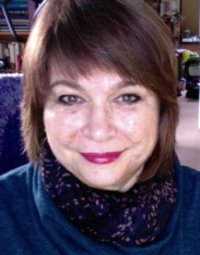
CASDA Releases Results of the National Needs Assessment Survey
Last month, the Canadian Autism Spectrum Disorders Alliance (CASDA) released the results of its comprehensive nationwide autism needs assessment survey. The survey drew upon the experiences and perspectives of caregivers of individuals with ASD, adults with ASD, and professionals working with individuals with ASD to create a full view of autism needs throughout Canada. Click here to watch a video presentation about the survey, or click here to read the results.
